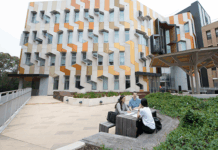The current situation with Monkeypox is quickly changing and caseloads in Australia are increasing.
What is Monkeypox?
Monkeypox (MPX) is a disease caused by infection with the monkeypox virus. Since May 2022, there has been a multi-country outbreak of MPX with spreading reported in countries that have not before seen cases of MPX, including Australia.
What are the symptoms?
MPX illness is usually mild and people typically recover within a few weeks.
Signs and symptoms of monkeypox infection can include:
- a distinctive rash, lesions (bumps that turn into pimples, blisters or sores, and may burst to form ulcers or scabs)
- swollen lymph nodes
- fever
- headache
- muscle aches
- joint pain
- back pain
- chills
- exhaustion.
Symptoms can resemble sexually transmitted infections (STIs) such as herpes or syphilis as well as other diseases with a rash such as measles or chickenpox.
How is it spread?
MPX is spread through long physical contact with someone affected by the MPX virus. This includes sexual or intimate contact. MPX is not considered an STI, however can be transmitted through sexual contact. Bodily fluids, scabs and sores in the mouth area are particularly infectious.
Who does it affect?
MPX can affect anyone who has prolonged physical contact with someone affected with the MPX virus. Currently, there is a higher caseload among gay, bisexual and other men who have sex with men (MSM) and it appears to be moving amongst sexual networks. One reason there is more caseload deteceted in this group is due to their tendency to seek out sexual health advice. MPX can resemble symptoms of other STI’s and consequently, MPX cases are detected in many sexual health clinics around the world.
How is it treated?
Most people require no, or only supportive, treatment for MPX. This may include simple pain relief. Antiviral treatment may be needed in patients with more severe disease. Guidance on the use of treatments for MPX in Australia is available in the Monkeypox treatment guidelines.
Vaccines can be given either before or after a person is exposed to the virus, but before exposure is recommended for the best protection.
For more information on vaccines against MPX, visit Monkeypox (MPX) vaccines.
How is it prevented?
MPX can be prevented by avoiding contact with people with suspected or confirmed MPX. This includes contact with any potentially contaminated materials, such as bedding and towels, that have been in contact with an infected person.
MPX can also be prevented by limiting your number of sexual partners and ensuring that you have their contact details, until you are fully vaccinated. Vaccination will also protect people from MPX.
People who are at highest risk should be aware of the symptoms of MPX and self-monitor for symptoms.
Staying vigilant with hygiene measures including washing hands with soap and water or alcohol-based sanitiser is important.
What do I do if I think I may have Monkeypox?
If you develop symptoms of MPX you should stay home, restrict your contact with others, and seek medical care and testing without delay.
Wear a mask and call your GP clinic, Melbourne Sexual Health Centre, or your nearest sexual health service to let them know you will be attending. If you have any rashes, lesions, sores or scabs make sure these are covered.
People who have MPX should avoid contact with others, especially children, pregnant women and people with a weakened immune system. This includes sharing of beds and sexual activity. While condoms are recommended and will protect against other STIs, they may not be effective at preventing the transmission of MPX.
You should also avoid contact with animals including pets, due to the risk of human-to-animal spread.
More information
- Monkeypox – Better Health Channel
- Monkeypox (MPX) | Thorne Harbour Health
- Monkeypox (MPX) | Australian Government Department of Health and Aged Care
- Monkeypox | health.vic.gov.au
Where to get help
- Always call an ambulance in an emergency (triple zero) Tel. 000
- Emergency department of your nearest hospital
- Your GP (doctor)
- NURSE-ON-CALL Tel. 1300 60 60 24 (24 hours, 7 days) – for confidential health advice from a registered nurse
- Melbourne Sexual Health Centre Tel. (03) 9341 6200 or 1800 032 017 or TTY (for the hearing impaired) Tel. (03) 9347 8619
- Thorne Harbour Health (formerly Victorian AIDS Council) Tel. (03) 9865 6700 or 1800 134 840















